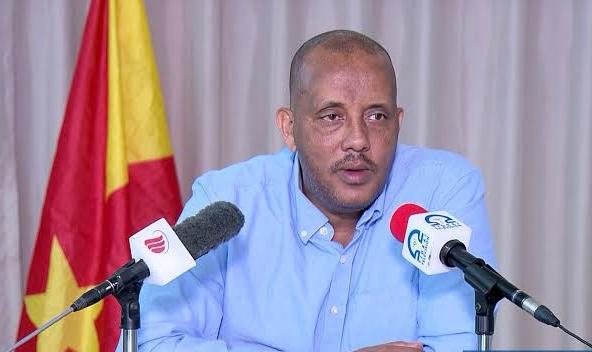Looming famine in Ethiopia’s Tigray sparks starvation fear

The people of Ethiopia’s Tigray region are facing the gravest famine in recent memory, with Tigray’s regional President, Getachew Reda, stating on Friday that the situation is a “catastrophe” akin to the deadly 1984 event that claimed over a million lives in the Horn of Africa nation.
The people of Ethiopia’s Tigray region are facing the gravest famine in recent memory, with Tigray’s regional President, Getachew Reda, stating on Friday that the situation is a “catastrophe” akin to the deadly 1984 event that claimed over a million lives in the Horn of Africa nation. A statement issued by the regional presidency said that thousands of Tigrayans have perished due to lack of food since the signing of the Pretoria Agreement in November 2022, marking the end of the conflict between the Ethiopian government and The Tigray People’s Liberation Front (TPLF).
The legacies of the destructive war in Tigray and drought-induced famine have created a lethal combination, exposing 91% of Tigray citizens to the risk of starvation.
More To Read
- Faith under fire: How social media fuels rising attacks on religions, followers in Ethiopia
- Daua Dam, irrigation masterplan gain momentum after high-level talks in Nairobi
- Kenya steps up border checks as Ethiopia confirms outbreak of Marburg Virus Disease
- Technology of freedom, risk of violence: Digital divide facing women in post-war Tigray
- Cultural victory as Ethiopia recovers 12 artefacts taken to Germany in the 1920s
- ONLF accuses Ethiopia of breaching 2018 peace deal as Somali Region tensions rise
The statement emphasized the inadequate attention to this “looming catastrophe,” highlighting harrowing evidence of vulnerable segments—children, the elderly, and pregnant and nursing women—succumbing to hunger and death.
Getachew has called on the federal government and the international community to “fulfill their legal and moral responsibilities by intervening promptly to address the looming danger of starvation and death. Hunger is a deadly silent killer.”
He emphasized that the Ethiopian government and the international community have done their part to silence the guns, and “now, they should do their part to address the looming humanitarian catastrophe.”
Shortages of seasonal rainfall and desert locust infestation have wreaked havoc, constituting a humanitarian tragedy.
The decimation of Tigray’s economic base, destruction of health facilities, plundering of private and public wealth, and forced displacement of over a million people have left millions impoverished, unable to fend for themselves.
Getachew issued a warning that the lack of a concerted effort to address the tragedy will have deadly consequences and far-reaching ramifications for national and regional peace and stability. Despite hopeful signs, the amount raised so far is insufficient to address Tigray’s impending catastrophe.
The statement notes, “Although aid has since been restored on a limited basis, the amount of aid reaching the needy is a fraction of what is necessary to meet current requirements,” emphasizing the significant role of the temporary suspension of humanitarian aid in this deteriorating crisis.
As the death toll in the region rises due to starvation, with at least 176 people, including 75 women, succumbing earlier this month, the interim government declares a state of emergency in response to the ongoing humanitarian crisis.
Other Topics To Read
Top Stories Today













































